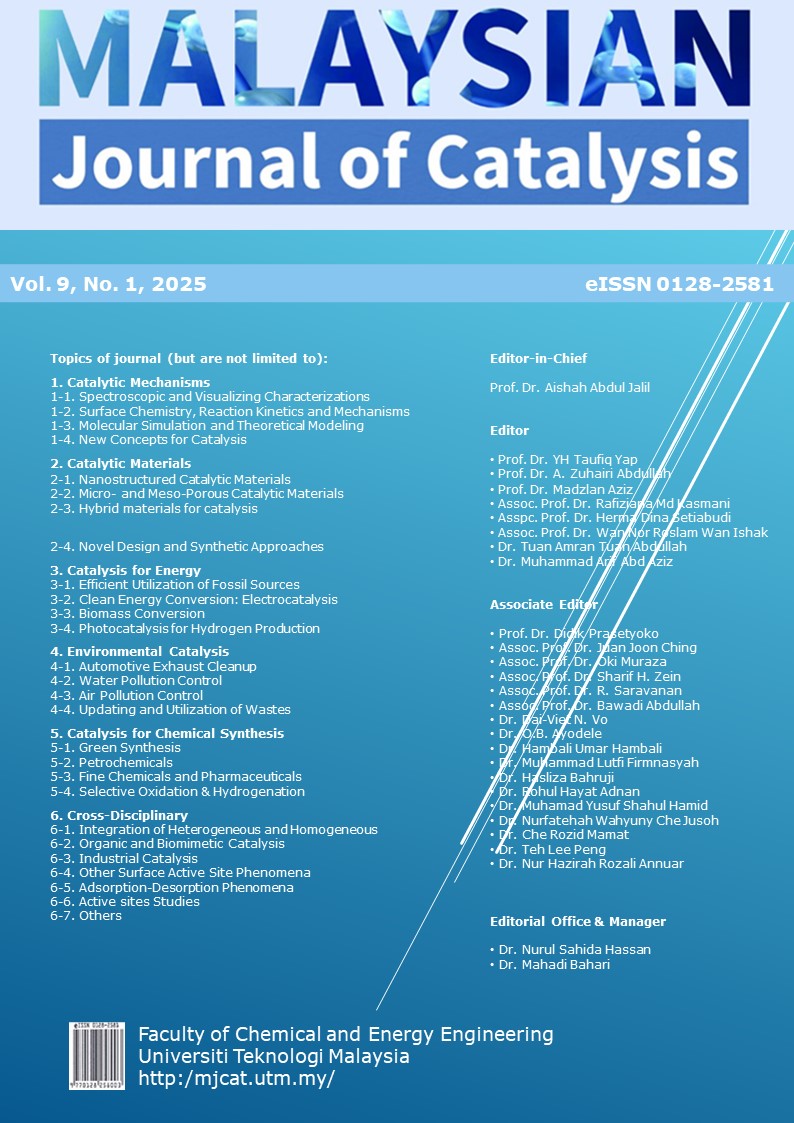Biomass-based Sorbents for Oil spill Clean-up: A review
DOI:
https://doi.org/10.11113/mjcat.v9n1.192Keywords:
Biomass-based sorbents, Oil spill remediation, Carbonized biomassAbstract
The pervasive environmental and health impacts of oil spills, stemming from the extraction, transportation, and handling of crude oil, highlight an urgent need for sustainable remediation techniques. Traditional cleanup methods such as oil skimming, combustion, and synthetic sorbents are often limited by high costs, non-biodegradability, and potential environmental risks. As oil spills continue to rise with global oil consumption, sustainable, eco-friendly alternatives are essential. This review evaluates biomass-based sorbents, particularly agricultural fibres, as promising substitutes for synthetic materials. These natural sorbents exhibit high oil sorption capacities, are biodegradable, and possess hydrophobic properties that enable effective oil retention while repelling water. Their low cost, availability, and potential for reuse through carbonization also position them as economically viable and environmentally responsible solutions. Carbonized biomass sorbents produce biochar, a porous material applicable in wastewater treatment and soil conditioning, contributing to resource circularity and aligning with sustainability goals. Through an analysis of recent advancements, sorption efficiencies, and environmental impacts, this review assesses biomass-based sorbents’ potential to reduce environmental degradation and enhance waste management, underscoring their role in supporting a circular economy approach for oil spill cleanup.

Downloads
Published
How to Cite
Issue
Section
License

This work is licensed under a Creative Commons Attribution-NonCommercial 4.0 International License.
The Malaysian Journal of Catalysis publishes open access articles under the terms of the Creative Commons Attribution (CC BY) License which permits use, distribution and reproduction in any medium, provided the original work is properly cited.Â
The Department of Chemistry, Faculty of Science, UTM retains the Copyright on any research article published by Malaysian Journal of Catalysis.
Authors grant Malaysian Journal of Catalysis a license to publish the article and identify itself as the original publisher.















